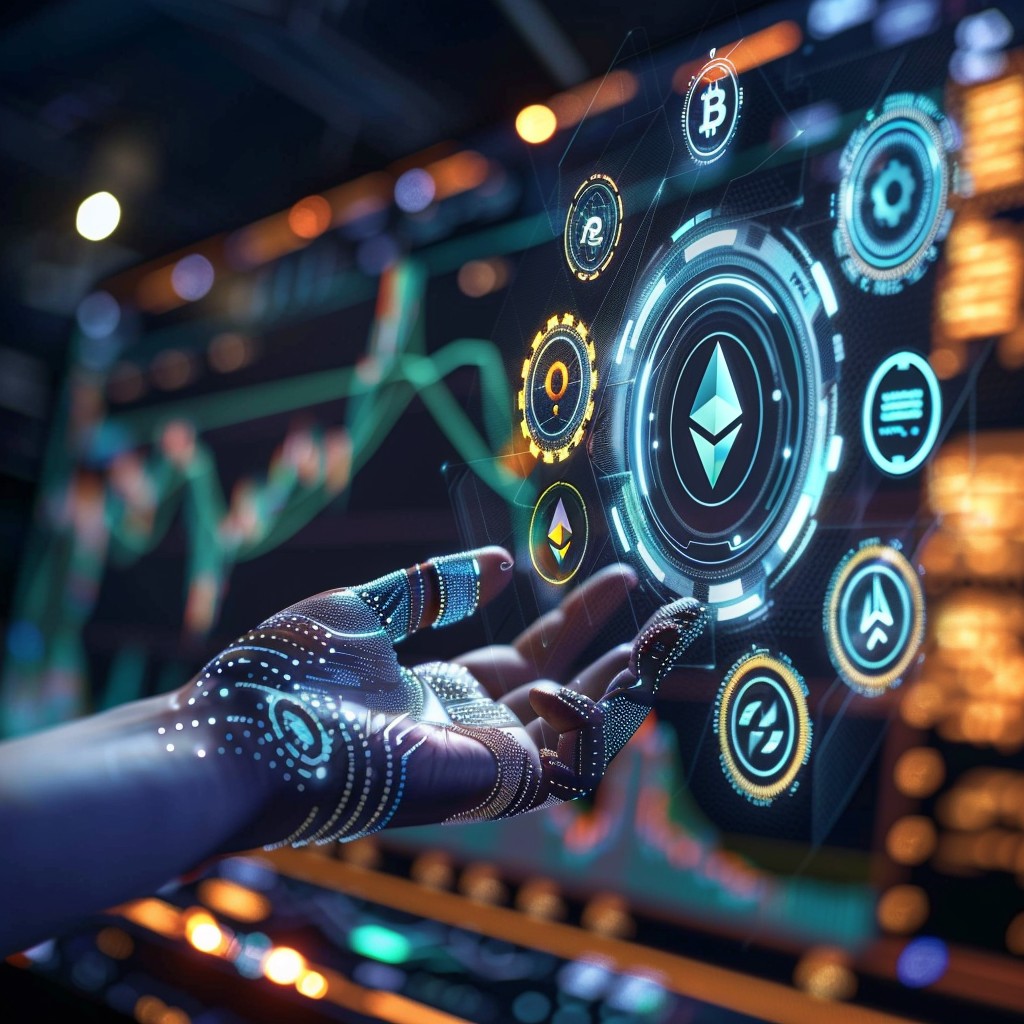How AI is Shaping the Future of Digital Marketing
In today’s fast-paced digital landscape, AI in digital marketing is no longer just a futuristic concept; it has become a transformative force revolutionizing how businesses connect with their audiences online. From personalized customer experiences to predictive analytics, AI in digital marketing is playing a crucial role in shaping the future of the industry. In this blog, we will explore the key ways artificial intelligence is influencing digital marketing and what this means for marketers moving forward.
1. Personalized Customer Experiences
One of the most significant impacts of AI in digital marketing is its ability to create highly personalized customer experiences. AI-powered algorithms analyze vast amounts of data to understand individual user behavior, preferences, and patterns. This allows marketers to deliver targeted content, recommendations, and ads that resonate with each customer on a personal level.
For example, AI in digital marketing enables e-commerce platforms to recommend products based on a user’s previous searches, purchases, and even browsing history. This level of personalization enhances the customer journey, increases engagement, and ultimately drives conversions. With AI, marketers can move beyond generic messaging and create tailor-made experiences that meet the specific needs and desires of their audience.
2. Enhanced Content Creation
Content remains at the heart of digital marketing, and AI in digital marketing is making it easier than ever to create relevant and engaging content. AI-driven tools, such as natural language processing (NLP) and machine learning, can generate content ideas, write blog posts, and even optimize content for SEO.
For instance, AI-powered platforms like GPT-3 (which powers tools like ChatGPT) can assist in content creation by generating copy, headlines, and meta descriptions. These tools help marketers produce high-quality content quickly, freeing up time to focus on strategy and creative elements. AI in digital marketing can also analyze how well content performs and provide insights on how to improve future pieces based on data-driven results.
3. Predictive Analytics and Data-Driven Decision Making
Data is the new oil, and AI in digital marketing is the engine that processes it. Predictive analytics powered by AI allows marketers to make informed decisions by analyzing past behaviors and forecasting future trends. This can be applied to everything from customer segmentation to campaign performance.
For example, AI in digital marketing can predict which customers are more likely to convert based on their past behavior, allowing marketers to focus their efforts on high-potential leads. Additionally, AI can optimize advertising campaigns in real-time by adjusting bids, targeting, and creative elements based on performance data, ensuring the best possible return on investment (ROI).
4. Chatbots and Customer Support Automation
AI-driven chatbots have become a staple in digital marketing and customer support. These virtual assistants provide real-time responses to customer inquiries, handle common questions, and guide users through their buying journey. By automating customer support, businesses can provide 24/7 assistance without the need for human intervention, significantly improving the customer experience.
Moreover, AI chatbots are continually learning and improving their responses, making them more effective over time. They can also gather valuable customer data and insights, which can be used to further refine digital marketing strategies.
5. Voice Search Optimization
With the rise of smart speakers and voice-activated devices like Amazon Alexa and Google Assistant, voice search is becoming an increasingly important aspect of digital marketing. AI in digital marketing is at the core of voice search technology, enabling these devices to understand and respond to user queries.
Marketers need to adapt their SEO strategies to accommodate voice search by focusing on conversational keywords and optimizing content for natural language queries. AI-driven tools can help marketers identify the best keywords for voice search and create content that aligns with how people speak, rather than just how they type.
6. Programmatic Advertising
Programmatic advertising leverages AI in digital marketing to automate the buying and placement of ads in real-time. Through programmatic platforms, AI algorithms analyze user data and behavior to ensure that ads are shown to the right audience at the right time, optimizing the effectiveness of digital ad campaigns.
This automation saves time and reduces the margin for error, making ad targeting more accurate and cost-effective. As AI continues to advance, programmatic advertising will become even more sophisticated, allowing for hyper-targeted campaigns that drive better results.
7. Visual and Voice Recognition
AI-driven visual and voice recognition technologies are enhancing how marketers engage with their audiences. Visual recognition allows platforms like Instagram and Pinterest to identify objects in images, enabling marketers to deliver more relevant content and ads based on what users are viewing or interacting with.
Similarly, voice recognition technology is becoming more sophisticated, allowing for better voice search capabilities and personalized audio content. This opens up new avenues for marketers to reach their audience through emerging channels, such as podcasts and voice-activated apps.
8. Sentiment Analysis
Understanding how customers feel about your brand is crucial for effective marketing, and AI-powered sentiment analysis tools are making this easier. By analyzing social media posts, reviews, and other online content, AI can detect positive, negative, or neutral sentiments expressed by users.
Marketers can use this data to adjust their messaging, improve customer relations, and address potential issues before they escalate. Sentiment analysis also helps brands monitor their reputation in real-time and respond proactively to both praise and criticism.
9. Email Marketing Automation
AI is enhancing email marketing by automating and optimizing campaigns based on user behavior and preferences. AI-powered email marketing tools can segment audiences, personalize content, and determine the best time to send emails to maximize open and click-through rates.
Moreover, AI in digital marketing can analyze campaign performance and provide insights on how to improve future email marketing efforts, ensuring that businesses consistently deliver relevant content to their subscribers.
Conclusion
AI in digital marketing is reshaping the landscape by enabling businesses to deliver more personalized experiences, optimize campaigns, and make data-driven decisions. As AI continues to evolve, marketers who embrace these technologies will be better equipped to stay ahead of the competition and meet the ever-changing demands of their audiences.
Whether it’s through AI-powered content creation, predictive analytics, or automation, the future of digital marketing is undoubtedly intertwined with the advancements in artificial intelligence. Now is the time for businesses to harness the power of AI and leverage it to drive growth, efficiency, and success in the digital world.







Leave a Reply